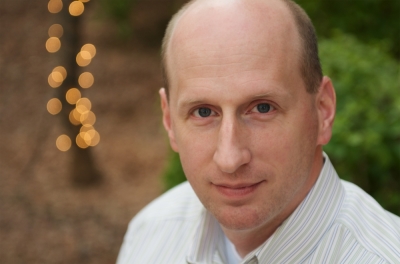City of Houston Attacks Pastors, Demands to See Emails, Text Messages

The story sounds like something you'd read on a crazed e-mail forward — the city of Houston demands to see the contents of pastors' sermons on the topic of homosexuality, gender identity, and . . . restroom access. In fact, when I first heard the story from a parent at my kids' school, I didn't believe it.
But, yes, it's true. In fact, the reality is even worse than the reports. Houston — as part of its litigation strategy opposing a voter lawsuit filed after the city rejected voter petitions to repeal a law that allows members of the opposite sex into bathrooms — has issued subpoenas that don't just demand pastors' sermons on the topics of "equal rights, civil rights, homosexuality, or gender identity," (and, of course, "restroom access"), they also demand all documents including "emails, instant messages, and text messages" on those same topics.
So, if a pastor is engaged in a theological discussion with a fellow pastor on the covered topics, that will have to be produced. If a pastor texts a friend his position on "restroom access," that has to be produced.
Oh, and did I mention that the pastors aren't even parties to the lawsuit?
The sexual revolution, apparently, brooks no dissent. Not even from the pulpit, or in Skype chat boxes.
As I looked closer at the issue, the best-case scenario was this was "merely" (as Ed Whelan points out) big-firm scorched-earth litigation tactics, the kind of harassment that veteran litigators engage in almost without thinking, and certainly without thinking through the First Amendment implications.
But then I saw this tweet from the Houston mayor:
"If the 5 pastors used pulpits for politics, their sermons are fair game. Were instructions given on filling out anti-HERO petition?-A"
Umm, no. Pastors are not "fair game" simply for doing their job. First — and contrary to popular leftist belief — pastors can absolutely educate their flock, engage in issue advocacy, and even endorse ballot referenda from the pulpit. That does not make them "fair game." Under IRS rules, they have an unlimited right to engage in issue advocacy, and they can endorse ballot referenda so long as the endorsement-related activities do not constitute a "substantial part" of the church's activities in a given year. But those are IRS rules and utterly irrelevant to a state-court lawsuit regarding the validity of voter signatures.
Second, there is a degree of constitutionally protected privacy in your First Amendment–protected speech. For example, in DeGregory v. New Hampshire, the Supreme Court quashed a state inquiry into a citizen's past "subversive" activities with the Communist party. In the words of the Court:
The Attorney General further sought to have him disclose information relating to his political associations of an earlier day, the meetings he attended, and the views expressed and ideas advocated at any such gatherings.
The Court noted that compelled disclosure was "objectionable and damaging in the extreme to one whose associations and political views do not command majority approval" and held that in the absence of an "overriding and compelling state interest," Mr. DeGregory could, in fact, keep his views to himself. Speaking more broadly, the Court declared that "The First Amendment prevents use of the power to investigate enforced by the contempt power to probe at will and without relation to existing need."
And what, pray tell, is the "existing need" here? To hear the mayor of Houston tell it, the "existing need" is to find out if pastors used their First Amendment–protected speech (including sending personal e-mails and text messages) for "political" purposes, something they had the right to do. If there is a specific allegation of wrongdoing against a specific pastor, then make that allegation. Otherwise, the fishing expedition is unconstitutional, and chillingly so.
I agree with Eugene Volokh when he says, that "at the very least, the subpoena seems vastly overbroad." But his post on the topic spends most of its time exploring a question that's not really at issue — whether a pastor's sermons are always off limits in civil discovery. The issue here is entirely different — whether the mere existence of civil litigation regarding a contentious ballot issue can be a pretext for publicly exposing the public and private communications of pastors who are not even parties to the litigation. What's next, subpoenaing all political donor emails when there's an election challenge?
The message Houston is sending is clear: You'll agree with our dictates or you'll be humiliated.
My good friends at Alliance Defending Freedom have filed a motion to quash the city's subpoenas. May God bless their efforts. We'll soon see whether, as Mark Steyn predicts, our First Amendment isn't robust enough to survive a transgendered bathroom ordinance.






















